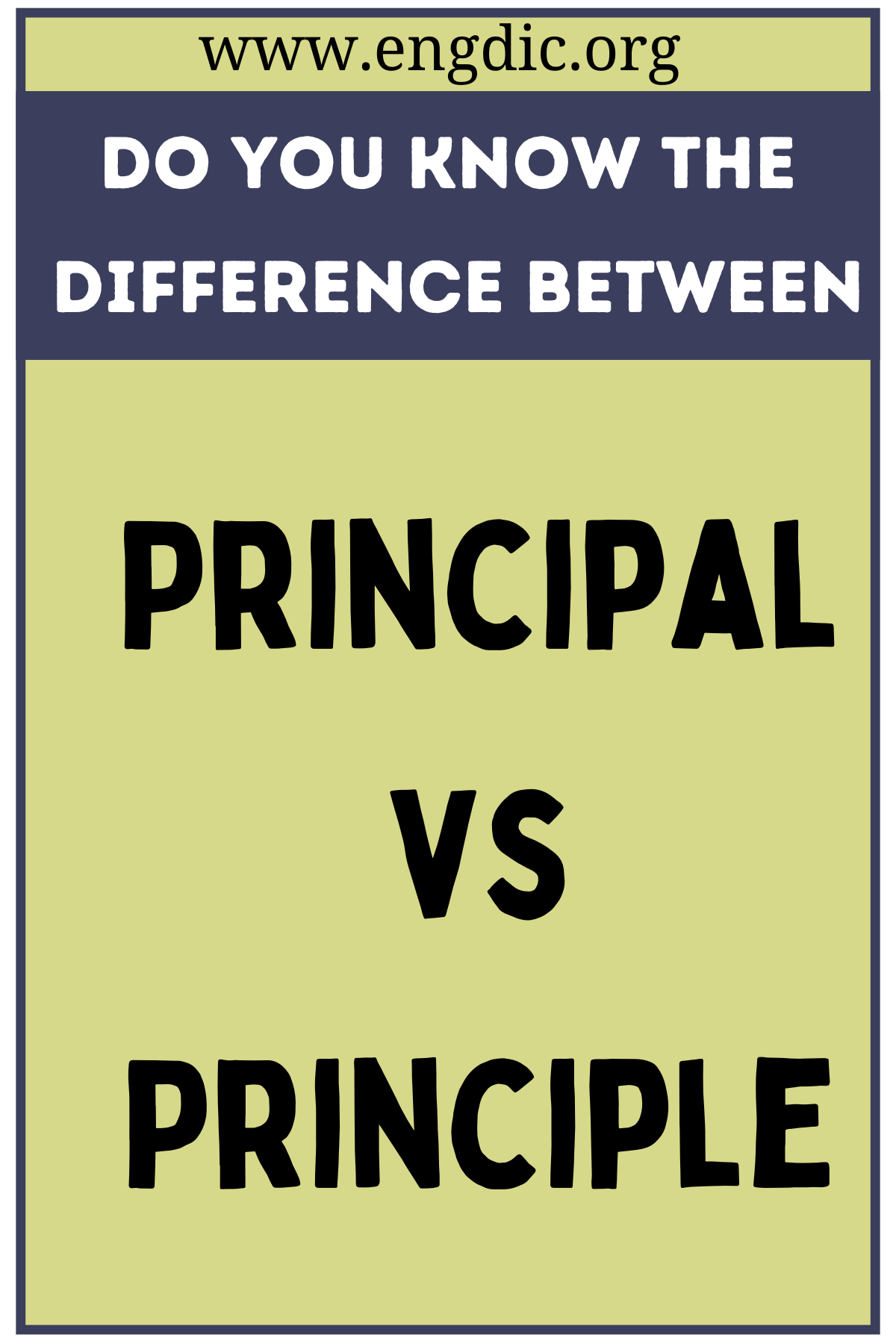“Principal” and “Principle” often cause confusion due to their similar pronunciation. The key difference is that “principal” refers to a person who holds a leading position or something of primary importance, while “principle” denotes a fundamental truth or belief guiding behavior.
Principal
Definition: “Principal” is a noun referring to a person in a leading position, like a school head or a financial term indicating a primary sum of money. As an adjective, it means “primary” or “chief.”
Usage & Examples:
- Person: “The principal of the school announced a new policy.”
- Primary Amount: “She repaid the loan’s principal amount.”
- Chief: “His principal concern was the safety of the children.”
Principle
Definition: “Principle” is a noun that signifies a basic truth, belief, or law that serves as a foundation for a system of thought or behavior.
Usage & Examples:
- Moral Principle: “Honesty is a fundamental principle in their family.”
- Scientific Law: “Archimedes’ principle explains buoyancy.”
- Foundational Belief: “She operates on the principle of fairness.”







